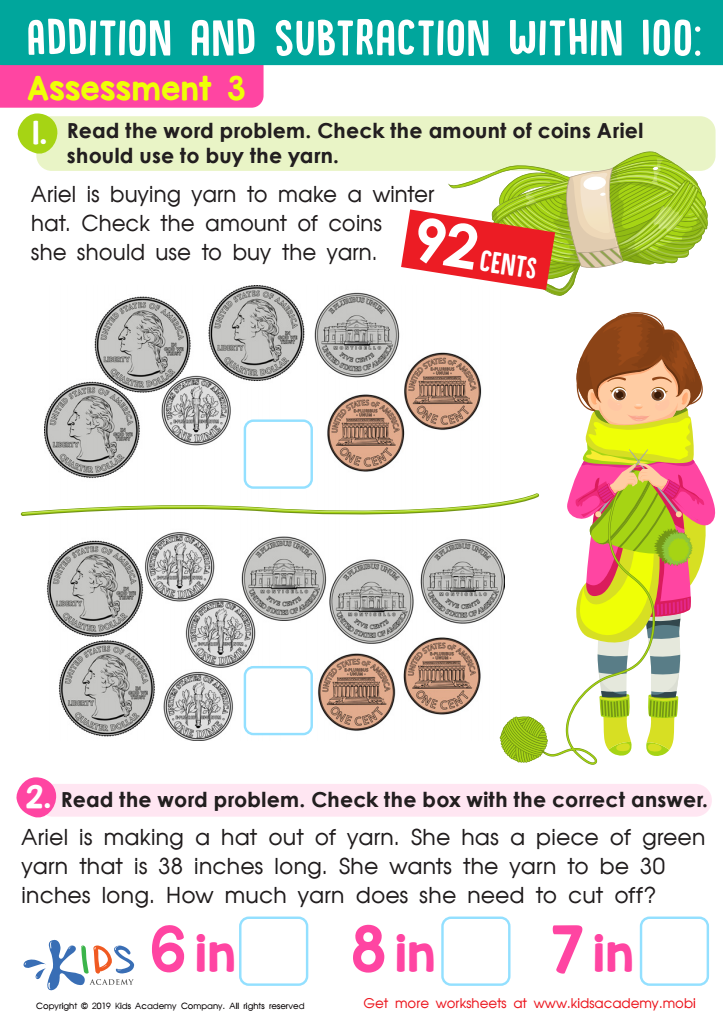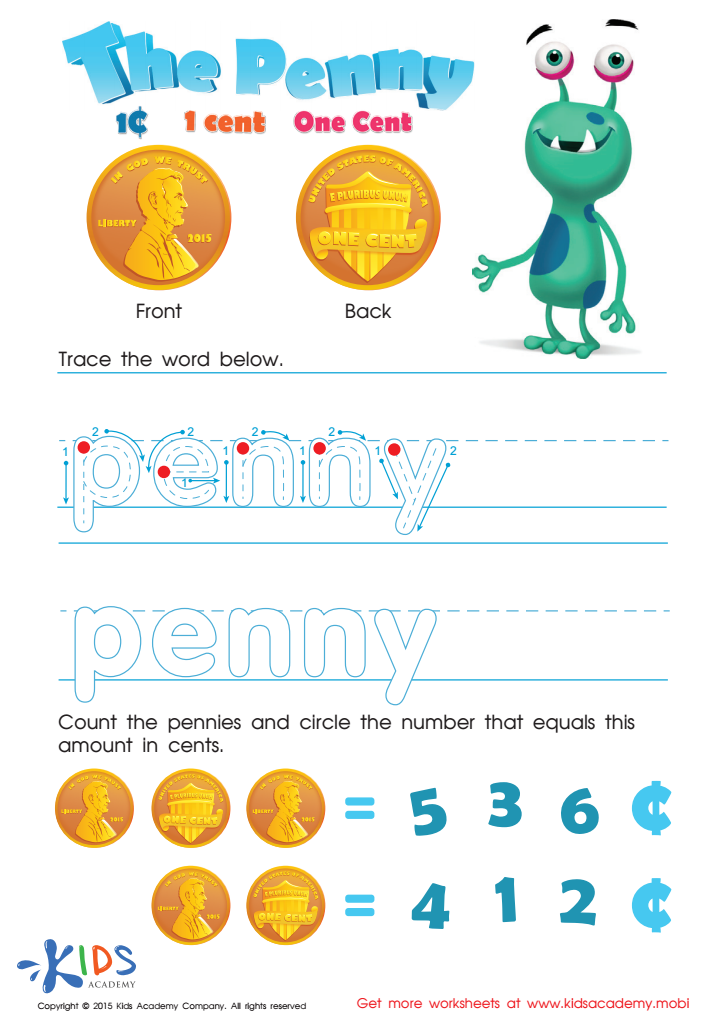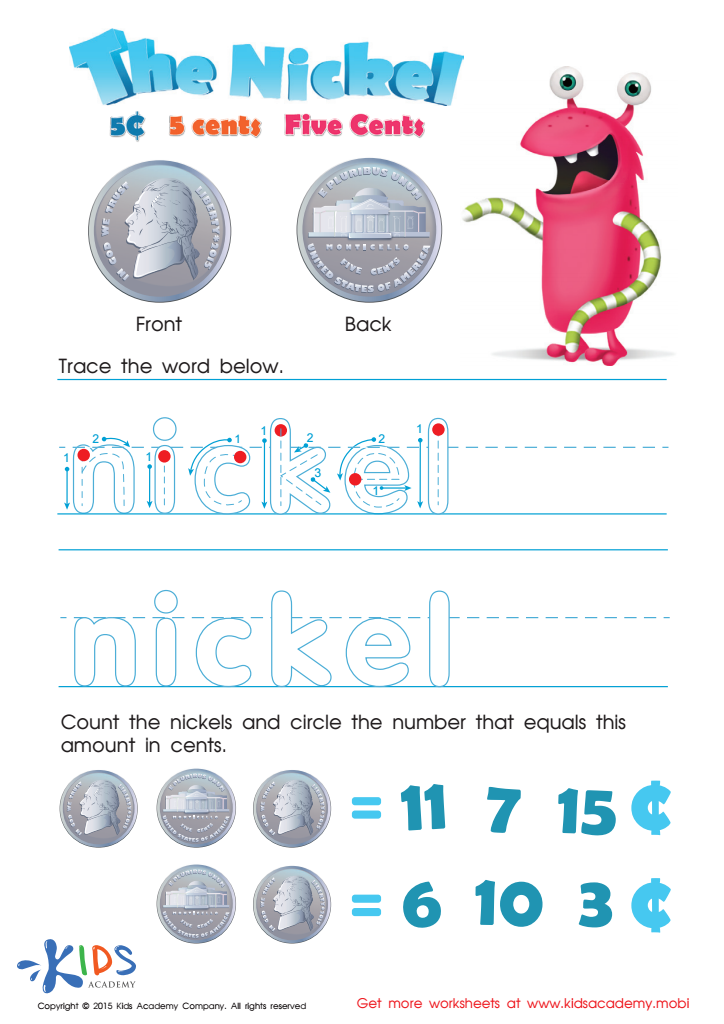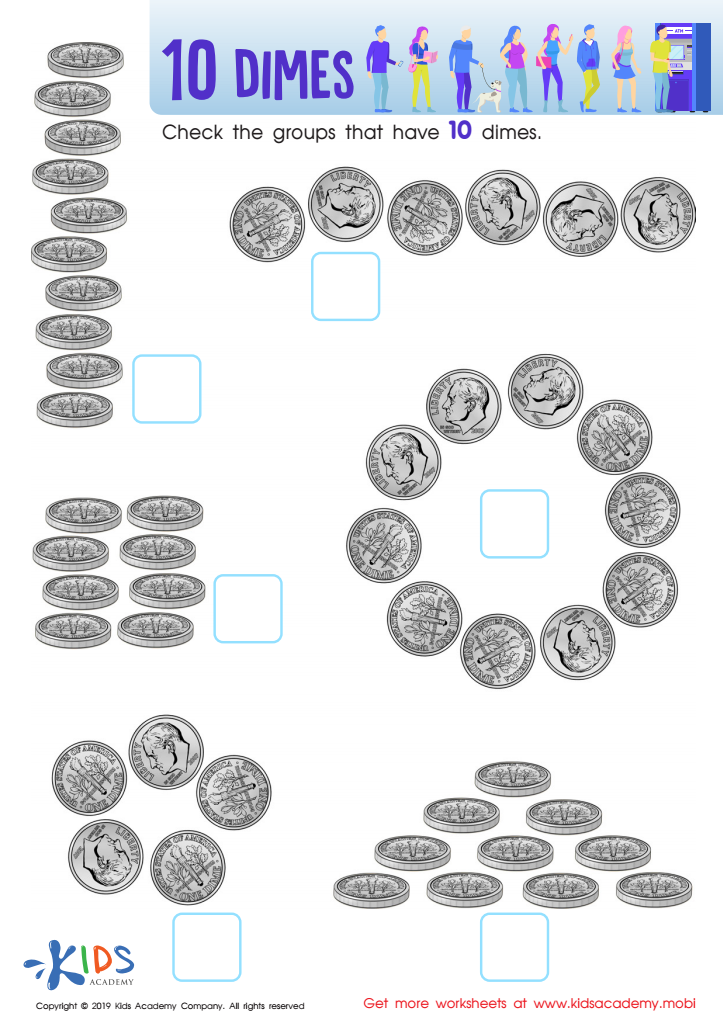Counting skills Coins Worksheets for Ages 6-9
4 filtered results
-
From - To
Boost your child's math proficiency with our Counting Skills Coins Worksheets for ages 6-9. These engaging, printable worksheets are designed to make learning how to count and recognize coins enjoyable. Perfect for young learners, they focus on improving counting abilities by incorporating fun activities featuring pennies, nickels, dimes, and quarters. Each worksheet fosters attention to detail and critical thinking, preparing children for real-world money handling. Through various exercises, kids enhance their ability to perform basic arithmetic, understand currency values, and develop practical math skills crucial for daily life. Spark your child's interest in math with these essential, interactive learning tools!


Assessment 3 Math Worksheet


One Cent or the Penny Money Worksheet


Five Cents or the Nickel Money Worksheet


10 Dimes Worksheet
Counting coins is an essential skill for children ages 6-9 as it lays the foundation for critical mathematical and real-world understanding. Firstly, mastering coins promotes numerical literacy, helping children to learn addition, subtraction, multiplication, and division. By handling coins, children get practical experience with numbers in the context of everyday transactions, making abstract concepts more tangible and relatable.
Secondly, counting coins enhances cognitive development. It involves multitasking—recognizing different coin values, counting, and calculating—to arrive at the total. This multi-step process improves problem-solving skills, logical reasoning, and memory.
Moreover, these skills foster financial literacy from an early age. Understanding money allows children to grasp concepts such as saving, spending, and budgeting, which are vital life skills. This early financial education instills good money habits and prepares them for future financial decisions.
In the classroom, coin counting can be a fun and interactive way to engage students. Using real or play money adds a tactile element that traditional paper-and-pencil exercises lack, making learning more engaging and effective. It encourages hands-on activities and group work, cultivating social skills and cooperative learning.
In summary, teaching children to count coins is more than a math lesson—it’s a building block for everyday life skills critical to their developmental and financial success.

 Assign to My Students
Assign to My Students



















